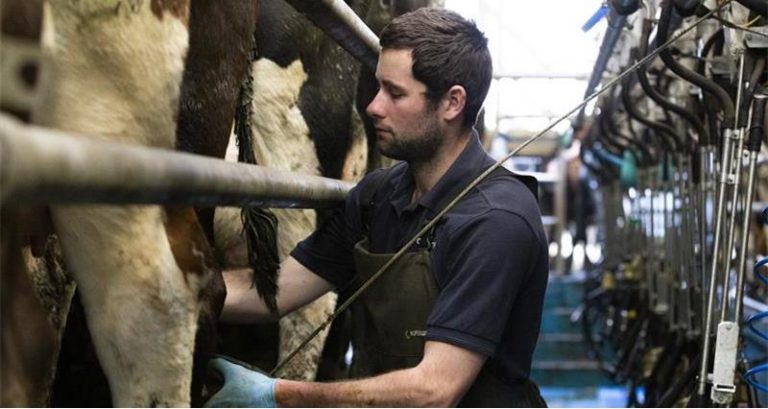Businesses assured they’ll be no more than three miles from a source of cash
One in ten dairy farmers ‘likely’ to stop milk production within two years
- Increases in input prices such as feed (84%), energy (83%), and fertiliser (74%) are all particular areas of worry.
- Over one third (36%) of those ceasing production are doing so due to retirement, with almost a fifth (18%) handing over their farm to the next generation.
- Over half (52%) of producers stopping production are unable to keep up with the scale of investment required for their enterprise to stay compliant, such as slurry storage, a factor that is highlighted as a main concern for the majority (91%) when considering whether to increase production in the future.
- NFU Dairy Board chair Michael Oakes said it is obvious these factors are putting the long-term resilience of dairy farming “under threat”, leading to a “crisis of confidence” amongst British dairy farmers. The survey results identified that supply chain fairness was a key factor with almost 90% of dairy producers saying this was important to support future milk production. New industry-wide contract regulation expected to come in later this year must support fairer, more transparent and accountable supply chains, said Michael. “But regulation isn’t a silver bullet,” he added. “With increasing global demand for British dairy, we know that the long-term future is bright for our sector,” said Michael. “To ensure we maximise this potential, it’s imperative that government continues to work with us to ensure we have the right environmental, regulatory and trade framework in place to support the production of high quality, nutritious and sustainable food.”
Yorkshire logistics company expands operations in the Southeast with acquisition
Yorkshire-based logistics company Expect Distribution has acquired Pallet Plus, an established transport company based in the Essex area. It comes as Expect seeks to enhance its national presence.
Expect Distribution purchased the £10m turnover business, based in Colchester, to strengthen the group’s offering, expanding operations in the Southeast and solidifying its capabilities as a UK-wide logistics and warehousing company.
Established since 2005, Pallet Plus is a family-run business providing national final mile distribution of palletised freight to and from the Essex region. Primarily a pallet network operator and a member of TPN, UPN and Palletways, Pallet Plus has a strong customer base in their immediate area which provides Expect with the opportunity to grow volume over the medium term and exploit existing synergies with current volume.
The acquisition of Pallet Plus will see Expect Distribution’s turnover exceed £60m.
Managing Director, Matthew Kilner said: “The fantastic reputation, dedication of the senior management team and drivers, operational capabilities and longstanding membership with three national pallet networks [The Pallet Network, UPN & Palletways], were more than enough for us to consider this acquisition. But beyond this, the cultural fit of the business was key. Pallet Plus are clearly a company punching above its weight and we are certain the two businesses will integrate seamlessly.”
Operations director and co-owner Andy Taylor added: “With the purchase of Pallet Plus, we can not only significantly increase our presence in Southeast with an owned operation but also bolster the proposition, by expanding the transport side of the business and introducing, in the medium term, a new warehousing offering which has been an important growth area for us in Bradford over recent years. I’d personally like to thank the team at Pallet Plus, and we look forward to working with them, to take both businesses forward.”
Gary Rowe, Managing Director at Pallet Plus, said: “The acquisition by Expect Distribution is a significant milestone and marks an exciting new chapter for both companies. Together, we will combine our collective resources, cutting-edge technology, and industry knowledge to provide even greater value to our clients. As we embark on this journey, I want to express my gratitude to our loyal customers, dedicated employees, and valued partners.”












